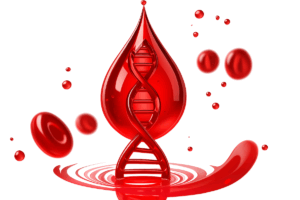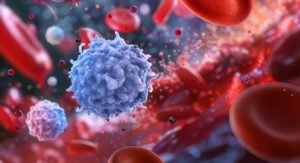Colorectal cancer stands out globally as a prevalent cancer type driven by genetic and epigenetic alterations, making personalised treatment challenging due to the uncertainty surrounding the specific mutations causing it. Microsatellite instability, reflecting an elevated risk of DNA replication errors and mutations stemming from repeated alterations in crucial sequences, and deficient mismatch repair, indicating an ineffective error-correction mechanism following DNA replication, have emerged as crucial focal points in cancer research. These factors serve as valuable biomarkers guiding therapy decisions for colorectal cancer.
This month’s recommended reading advocates for the adoption of next-generation sequencing techniques to enhance the precision of variant calling and identification hotspot carcinogenic mutations, thus enabling more tailored therapeutic approaches for colorectal cancer. A recent experiment sequenced 73 genes commonly linked with tumorigenesis across a cohort of over 400 colorectal cancer patients.
The study had the goal of correlating clinical characteristics such as age, gender, and cancer stage with the mutation rates of individual genes, thereby identifying genes relevant for prognosis and those helpful for targeted treatment strategies.
In the study, key findings revealed that TP53, KRAS, APC, PIK3CA, FBXW7, SMAD4, BRAF, and NRAS were the most frequently mutated genes. Notably, patients with high microsatellite instability (MSI-H) consistently exhibited these mutations. Certain mutations were significantly linked to distinct clinical features. For instance, TP53 mutations were correlated with tumour location and MSI status: this tumour-suppressing gene can greatly accelerate tumorigenesis and lead to poor prognosis for patients. Knowing the exact hotspot mutation sites in the gene would allow for more accurate therapeutic decisions. Another example is KRAS, whose mutations were associated with gender and metastasis: this gene plays a large role in downstream stimulation of many pathways such as the EGFR cascade, which is involved in colorectal cancer genesis.
Gene enrichment analysis identified the mutated genes as being enriched in several other carcinogenic pathways like PI3K-Akt, MAPK, Ras, or VEGF amongst others. These insights are pivotal for coming up with effective treatments, as they highlight which genes and pathways should be targeted for therapeutic intervention, and further research into these molecular pathways promises better outcomes for patients.
We at 4bases offer a range of 3 solutions in this field, 2 of them to explore somatic mutations, therefore supporting therapeutic decisions:
- BENKit Panel designed for the screening of metastatic colorectal cancer and non-small-cell lung carcinoma and
- PANCANCER Pro designed for the screening of solid tumours
And the third to explore germline mutations, therefore allowing a better surveillance of healthy carriers:
- HEVA pro
Cheng, B. et al. Correlation between NGS panel-based mutation results and clinical information in colorectal cancer patients. Heliyon 10, e29299 (2024).





